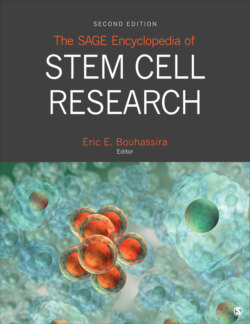Читать книгу The SAGE Encyclopedia of Stem Cell Research - Группа авторов - Страница 412
На сайте Литреса книга снята с продажи.
Current Therapies for Hematological Cancer in Clinical Trials The use of CD4 lymphocyte infusion to improve outcome after stem cell transplantation in treatment of hematological cancer
ОглавлениеAn ongoing phase II clinical trial aims to evaluate the efficacy of CD4 infusion in improving the ability of transplanted stem cells to replenish blood cells during treatment of leukemia, lymphoma, and myeloma and myelodysplastic syndrome. The use of very low doses of melphalan and fludarabine prior to stem cell transplant in cancer patients helps in stopping cancer growth. In addition, the chances of immune rejection by the host is also reduced by using this low dose of chemotherapy. Ultimately, these stem cells when transplanted have the capability to replace the host immune cells and enhance destruction of cancers cells that are not affected by the chemotherapy regime.
Researchers suggest lymphocyte infusion combined with stem cell transplant may have possible beneficial effects in the stem cell–induced killing of cancer cells and enhanced immune stem. However, it is still unclear whether lymphocyte transplant in this case may elicit immune response against the host cells, since the new immune cells produced by the transplanted stem cells may adjust to the donor cells. Because of this possible risk, the investigators believe that treatment with some cancer drugs like alemtuzumab or cyclosporine before and after transplant may help in stopping any likely immune response induced by the lymphocytes against the normal cells.
To assess the usability of this approach, the trial will investigate the progression of survival following transplant of the stem cells and estimate the ability of patients to achieve a significant or full donor chimerism in the circulating peripheral blood. In addition, the study will check for any occurrence of infections that may require clinical intervention and determine the relative proportion of re-formation and re-constitution T-cell-specific viral-specific immunity. Because of the likelihood of mortality arising from complications, the study will investigate cumulative occurrence of nonrelapse death rates, as well as monitor overall survival, incidence, and pattern of graft-versus-host disease following the combined lymphocytes and stem cell transplantation.
